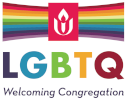UUA General Assembly: A Confluence of Faith, Governance, and Action
The Unitarian Universalist Association (UUA) General Assembly (GA) stands as the annual flagship event for Unitarian Universalists, a vibrant convergence of member congregations from across the nation. It is a multifaceted gathering that serves as a democratic congress, a spiritual revival, a leadership development conference, and a powerful platform for collective social action. For member congregations, GA is not merely a meeting but a vital artery that nourishes their local communities with theological depth, practical resources, and a profound sense of connection to the larger faith movement.
A Living Tradition: The History of General Assembly
The roots of the General Assembly are deeply embedded in the histories of the American Unitarian Association (AUA), founded in 1825, and the Universalist Church of America, established in 1793. Both denominations held annual or biennial meetings for fellowship, business, and the affirmation of their liberal religious principles. With the consolidation of these two faiths into the Unitarian Universalist Association in 1961, the modern General Assembly was born.
From its inception, GA has been a forum for pivotal moments in the denomination's history. It was at GA that the UUA took early and courageous stances on civil rights, LGBTQ+ equality, and other pressing social justice issues. The very fabric of UU identity, including the adoption and subsequent revisions of the Principles and Sources, has been woven through the democratic process of the General Assembly, most recently with the 2024 adoption of a new set of "Shared Values" centered on love.
The Power of the Pews: Governance and Congregational Input
The UUA is a covenantal association of self-governing congregations. This congregational polity is the bedrock of the General Assembly's governance structure. Each certified member congregation is entitled to send delegates to GA, with the number of delegates determined by the size of the congregation. These delegates are the voice of their home churches, tasked with electing the UUA President, Moderator, and other key leaders, as well as voting on bylaw changes and social witness statements.
Congregational input is not a passive process. Throughout the year, congregations are encouraged to engage in study and discussion of proposed business resolutions and social witness statements. This grassroots deliberation informs the votes of their delegates at GA. The "Social Witness" process, for instance, allows for Actions of Immediate Witness (AIWs) and Statements of Conscience (SOCs) to emerge from the concerns of members and congregations, ensuring that the UUA's public stances are reflective of the collective will. This democratic process, while sometimes complex, is a core expression of the UU commitment to individual conscience and democratic principles in both theology and governance.
Tangible Takeaways: Useful Outcomes for Members and Congregations
The value of the General Assembly extends far beyond the business sessions. For individual members and their congregations, the outcomes are both immediate and long-lasting:
• Spiritual and Theological Deepening: GA offers a rich tapestry of worship services, workshops, and lectures from leading UU theologians and thinkers. Attendees are immersed in a diverse and stimulating environment that can reignite their spiritual lives and provide fresh perspectives to bring back to their home congregations. The annual Ware Lecture, a highlight of GA, has featured prominent figures from various fields, offering profound insights on pressing contemporary issues.
• Leadership Development and Practical Skills: A wide array of workshops and training sessions equip congregational leaders—from board members and committee chairs to religious educators and social justice advocates—with practical skills and new ideas. Topics can range from innovative worship design and effective stewardship strategies to creating more inclusive and welcoming communities.
• Connection and Community: In a faith tradition that values individual belief, GA provides a powerful reminder of shared identity and purpose. The opportunity to connect with thousands of fellow Unitarian Universalists from different backgrounds and contexts fosters a sense of belonging and solidarity that can be deeply affirming and energizing. For virtual attendees, this connection is intentionally cultivated through dedicated online spaces, interactive chat features during live-streamed events, and virtual social gatherings. These platforms allow for meaningful dialogue and the formation of new relationships, ensuring that the feeling of community transcends physical distance.
• Inspiration for Social Action: GA is a potent catalyst for social justice work. Through inspiring speakers, workshops on effective organizing, and the collective discernment of social witness statements, attendees are empowered and equipped to engage in meaningful social change in their local communities and beyond. The public witness events held during GA often draw significant attention and amplify the UUA's voice on critical national issues.
• Resources and Networking: GA is a bustling marketplace of ideas and resources. Congregations can discover new curricula for religious education, connect with UU-affiliated organizations, and find inspiration for their own programs and initiatives. This experience is mirrored for online participants through a virtual exhibit hall, where they can browse digital booths, download materials, and chat live with representatives. Both in-person and virtual structured networking events, along with informal online discussion boards, provide invaluable opportunities for sharing best practices and building supportive relationships with other congregational leaders across the association.
Why GA Matters for Peterborough
Real Learning for Real Life: GA workshops aren't abstract theology – they're practical tools you can use. Recent sessions have included "Engaging Kids in Social Justice," "Building Inclusive Communities in Small Towns," and "Balancing Work, Family, and Faith Commitment." Learn fundraising strategies that work for small congregations, discover new approaches to children's religious education, and explore innovative ways to engage with community partners. These are skills that directly benefit our congregation and our wider Peterborough community.
Inspiration That Travels Home: Last year's Ware Lecturer addressed climate action in rural communities – exactly the kind of forward-thinking perspective that helps us tackle challenges right here in New Hampshire. Past GA delegates from our congregation have returned with fresh ideas for our food pantry partnerships, youth programming, and community outreach. Gain insights on rural ministry, environmental stewardship, and social justice work that directly applies to our Monadnock region context.
Connection Beyond Our Sanctuary: While we cherish our tight-knit Peterborough community, GA reminds us we're part of something larger. Meeting UU families from Vermont farming communities, Maine coastal towns, and other small New England congregations shows how our values translate across different contexts while staying rooted in local action. Connect with other UU professionals, educators, and community leaders who share your commitment to both traditional UU values and contemporary social action.
General Assembly is a dynamic and essential expression of Unitarian Universalism. It is where the democratic principles of the faith are put into practice, where the collective conscience is stirred, and where individual members and their congregations are fortified for the work of building a more just, compassionate, and loving world. By participating in GA, whether in person or virtually, member congregations invest in their own vitality and contribute to the ongoing evolution of their living tradition.


